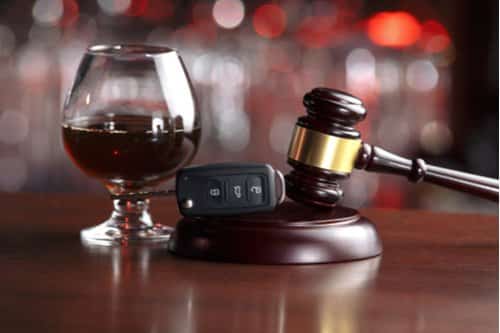Learn what You Need to Know about the Field Sobriety Tests During a DUI Traffic Stop in Arizona from Phoenix DUI Defense Attorney Mark Weingart
To arrest you for driving under the influence (DUI) in Arizona, the police officer who pulled you over must be able to establish “probable cause.” This requires much more than just a hunch that you were driving drunk, and, as a result, during your DUI traffic stop, the police officers will try to gather as much information as possible. If the officer believes that he or she has sufficient evidence to make an arrest, then he or she will arrest you, and this allows the officer to compel a blood alcohol concentration (BAC) test using the Intoxilyzer 8000 (commonly known as the “breathalyzer”) or a blood sample.
How Do the Police Establish Probable Cause for a DUI Arrest?
While the police gather a significant amount of information during DUI traffic stops, the traffic stop is not the start of the evidence-gathering process. In a typical case, the process of gathering and recording information begins the moment the officer decides to start following your car. However, once the police officer has observed driving behavior that establishes the “reasonable suspicion” required to stop you, then the process of gathering evidence ramps up significantly once you have been pulled over.
Reasonable Suspicion vs. Probable Cause in Arizona DUI Cases
To understand how, when, and why the police gather evidence in DUI cases, it is first necessary to understand the difference between “reasonable suspicion” and “probable cause.”
Although many people use these terms interchangeably, they are very different. They apply under different circumstances, establish different police requirements, and establish different rights for suspects in DUI and other criminal cases. To pull you over, the police must have “reasonable suspicion” that you are driving drunk. To arrest you, the police must have “probable cause” to believe that you are guilty of DUI.
Reasonable suspicion is a significantly lower standard than probable cause. In other words, the police do not need to have nearly as much evidence to pull you over as they do to arrest you. This makes sense—the police should need to have more information to arrest you than to pull you over—and it is a fundamental distinction that comes into play in many DUI cases in Arizona.
Evidence that Can Be Used to Establish Probable Cause for a DUI Arrest
Except in extremely erratic driving cases, the probable cause required to support a DUI arrest typically will not exist before your traffic stop—even if you are stopped for a moving violation such as speeding or failure to signal a turn. Once the officer approaches you for your license and proof of insurance, however, the hunt for DUI evidence against you begins in earnest.
The more you talk to the officer, the more opportunity he or she has to gather the evidence he or she needs to establish probable cause for a DUI arrest. This includes evidence such as:
- The smell of alcohol
- Empty cans or bottles in your car
- A flushed appearance
- Bloodshot or watery eyes
- Disarranged clothing
- Slurred speech
- Loud or inappropriate language and manner
During your DUI traffic stop, the police officer can also ask you to submit to the field sobriety tests. While you shouldn’t refuse the blood or breath test after you are arrested, you can – and should – refuse the field sobriety tests during your traffic stop.
The field sobriety tests are tools that the police use to gather more information suggesting an elevated BAC establish probable cause, and place you under arrest. There are three “standardized” field sobriety tests:
- Horizontal gaze nystagmus test – The officer observes your eye movement as you look side to side.
- Walk-and-turn test – The officer observes as you attempt to walk a straight line, turn around, and walk the line again.
- One-leg stand test – The officer observes as you attempt to balance on one leg on the side of the road.
However, even though these are “standardized” tests used by law enforcement agencies across the country, the ability of these tests to prove a suspect’s BAC or level of impairment is marginal at best. In fact, in most cases, these tests lack any real validation at all. These tests are not designed for establishing a “passing” or “failing” performance. They do not consider the suspect’s age, weight, or sex; the impact of medical conditions from which the suspect may suffer; or external factors such as the weather. Due to these and other issues, our DUI attorneys have significant experience successfully challenging the results of field sobriety tests through pre-trial motions to suppress evidence and at trial.
Always Assume that There is a Digital Audio or Video Recording and Act Accordingly
While it is possible to challenge the arresting officer’s interpretation of field sobriety test “results” in many cases, the less you say and do during your DUI traffic stop, the better. Beyond presenting your license, registration, and insurance papers, you have no obligation to provide information to the officer who pulls you over. All other questions should be answered with a brief, polite, and explicit request to speak with an attorney. If you get arrested, you should continue to assert your right to legal counsel and your right to remain silent, and you should not answer any questions – before or after the police read your Miranda rights – unless advised otherwise by your attorney.
Discuss Your Case with a Phoenix DUI Defense Lawyer at The Weingart Firm
For more information about our Phoenix DUI defense lawyers ability to represent you effectively if the probable cause for your arrest was based on a field sobriety test, contact us promptly to schedule a free, no-obligation consultation. You can reach us by phone 24/7 at 480-405-7922, or tell us how we can reach you, and a member of our firm will be in contact shortly.






